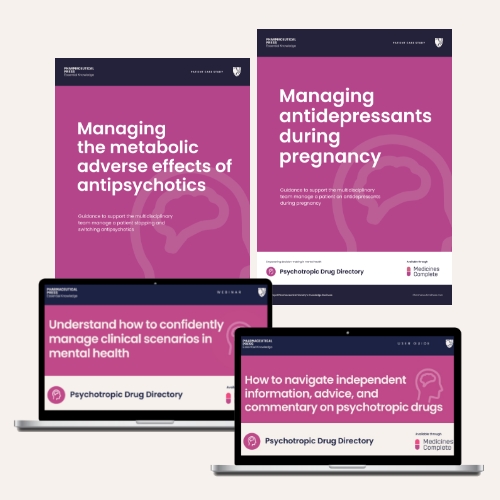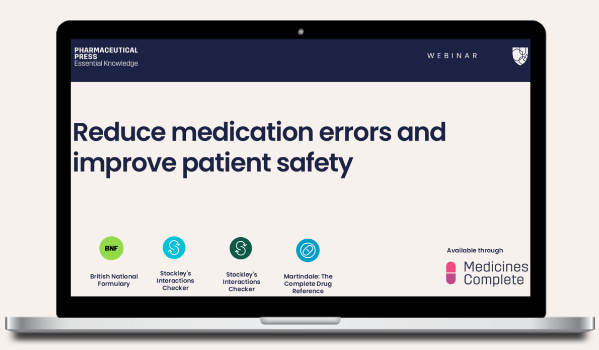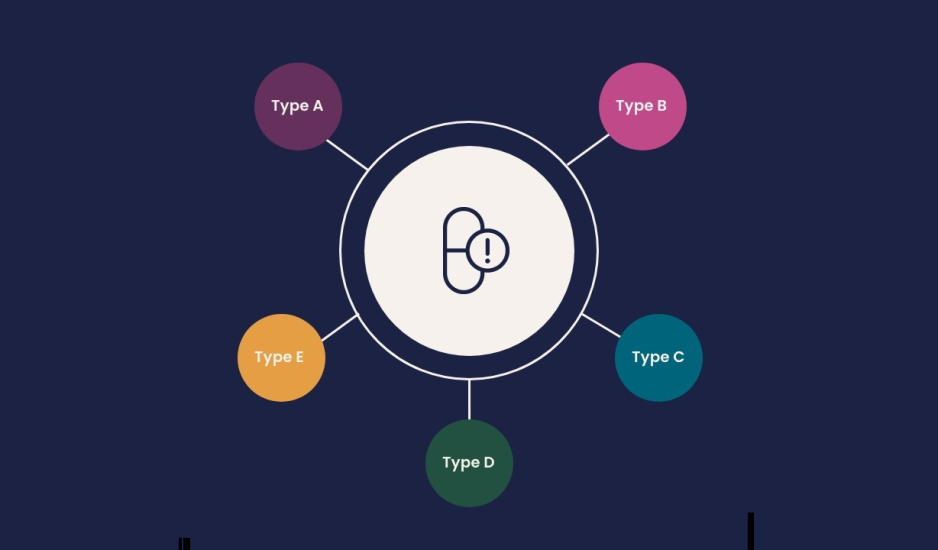Clarity’s DTG May 2022 Update
This update contains 8 significant changes and 18 minor changes.
Significant Changes:
- Trigeminal neuralgia — reviewed. A literature search was conducted in November 2021 to identify evidence-based guidelines, UK policy, systematic reviews, and key randomized controlled trials published since the last revision of this topic. Updated literature has been incorporated to provide supporting evidence for the guidance. Addition of a differential diagnosis section. Minor changes to prescribing advice in line with manufacturer’s guidance (SmPC for Tegretol). No major changes to the clinical recommendations have been made.
- Headache – assessment — reviewed. A literature search was conducted in February 2022 to identify evidence-based guidelines, UK policy, systematic reviews, and key randomized controlled trials published since the last revision of the topic. The topic has been updated in line with current available literature. The sections on Prognosis, Complications, and Differential diagnosis have been deleted, as content is included elsewhere in this topic or in other Clarity’s DTG topics. No major changes to the clinical recommendations have been made.
- Headache – tension-type — reviewed. A literature search was conducted in February 2022 to identify evidence-based guidelines, UK policy, systematic reviews, and key randomized controlled trials published since the last revision of the topic. The recommendations have been updated in line with current evidence in the literature. The section on QIPP – options for local implementation for nonsteroidal anti-inflammatory drugs (NSAIDs) has been deleted. The recommendations on management in primary care have been updated to include the option of physiotherapy, regular exercise, cognitive behavioural therapy, and/or relaxation techniques for some people.
- Aphthous ulcer — reviewed. A literature search was conducted in March 2022 to identify evidence-based guidelines, UK policy, systematic reviews, and key randomized controlled trials published since the last revision of this topic. No major changes to the recommendations have been made.
- Venous eczema and lipodermatosclerosis — reviewed. A literature search was conducted in March 2022 to identify evidence-based guidelines, UK policy, systematic reviews, and key randomized controlled trials (RCTs) published since the last revision of the topic.
- Adverse drug reactions — reviewed. A literature search was conducted in February 2022 to identify evidence-based guidelines, UK policy, systematic reviews, and key randomized controlled trials (RCTs) published since the last revision of the topic. No major changes were made to the recommendations.
- Parvovirus B19 infection — reviewed. A literature search was conducted in February 2022 to identify evidence-based guidelines, UK policy, systematic reviews, and key randomized controlled trials published since the last revision of the topic.
- Post-herpetic neuralgia — reviewed. A literature search was conducted in March 2022 to identify evidence-based guidelines, UK policy, systematic reviews, and key randomized controlled trials published since the last revision of this topic. No major changes to the recommendations have been made.
Minor Changes:
- Multiple myeloma — minor update. Aligned the parameters of levels of moderate hypercalcaemia with the Hypercalcaemia Clarity DTG topic.
- Learning disabilities — minor update. New wording added and statement of educational needs has been replaced by education, health and care plan.
- Bronchiectasis — minor update. Drug interactions with azithromycin to include hydroxychloroquine and chloroquine added in line with the manufacturer’s summary of product characteristics.
- Whooping cough — minor update. Drug interactions with azithromycin to include hydroxychloroquine and chloroquine added in line with the manufacturer’s summary of product characteristics.
- Gonorrhoea — minor update. Drug interactions with azithromycin to include hydroxychloroquine and chloroquine added in line with the manufacturer’s summary of product characteristics.
- Asthma — minor update. Drug interactions with azithromycin to include hydroxychloroquine and chloroquine added in line with the manufacturer’s summary of product characteristics.
- Lyme disease — minor update. Drug interactions with azithromycin to include hydroxychloroquine and chloroquine added in line with the manufacturer’s summary of product characteristics.
- Scarlet fever — minor update. Drug interactions with azithromycin to include hydroxychloroquine and chloroquine added in line with the manufacturer’s summary of product characteristics.
- Prostatitis – chronic — minor update. Drug interactions with azithromycin to include hydroxychloroquine and chloroquine added in line with the manufacturer’s summary of product characteristics.
- Urethritis – male — minor update. Drug interactions with azithromycin to include hydroxychloroquine and chloroquine added in line with the manufacturer’s summary of product characteristics.
- Pelvic inflammatory disease — minor update. Drug interactions with azithromycin to include hydroxychloroquine and chloroquine added in line with the manufacturer’s summary of product characteristics.
- Chlamydia – uncomplicated genital — minor update. Drug interactions with azithromycin to include hydroxychloroquine and chloroquine added in line with the manufacturer’s summary of product characteristics.
- Cervical screening — minor update. The section on follow-up screening after hysterectomy has been updated to align with the Public Health England 2021 guidance in Colposcopic diagnosis, treatment and follow up.
- Depression – antenatal and postnatal — minor update. Telephone number for UKTIS has been updated.
- Antiplatelet treatment — minor update. Added adverse effect of bradyarrhythmia and AV block for people taking ticagrelor in line with revised manufacturer’s SPC.
- Neuropathic pain – drug treatment — minor update. Further information about assessment prior to initiation of medication and risk of dependence added in line with NICE [NG215] 2022 Medicines associated with dependence or withdrawal symptoms: safe prescribing and withdrawal management for adults.
- Benzodiazepines and Z-drugs — minor update. Further information about assessment prior to initiation of medication and risk of dependence added in line with NICE [NG215] 2022 Medicines associated with dependence or withdrawal symptoms: safe prescribing and withdrawal management for adults.
- Opioid dependence — minor update. Further information about assessment prior to initiation of medication and risk of dependence added in line with NICE [NG215] 2022 Medicines associated with dependence or withdrawal symptoms: safe prescribing and withdrawal management for adults.





